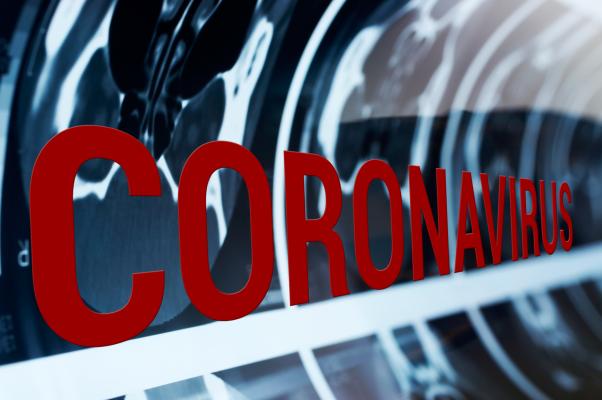
Getty Images
July 8, 2020 — Many patients with severe coronavirus disease 2019 (COVID-19) remain unresponsive after surviving critical illness. Investigators led by a team at Massachusetts General Hospital (MGH) now describe a patient with severe COVID-19 who, despite prolonged unresponsiveness and structural brain abnormalities, demonstrated functionally intact brain connections and weeks later he recovered the ability to follow commands. The case, which is published in the Annals of Neurology, suggests that unresponsive patients with COVID-19 may have a better chance of recovery than expected.
In addition to performing standard brain imaging tests, the team took images of the patient's brain with a technique called resting-state functional magnetic resonance imaging (rs-fMRI), which evaluates the connectivity of brain networks by measuring spontaneous oscillations of brain activity. The patient was a 47-year-old man who developed progressive respiratory failure, and despite intensive treatment, he fluctuated between coma and a minimally conscious state for several weeks.
Standard brain imaging tests revealed considerable damage, but unexpectedly, rs-fMRI revealed robust functional connectivity within the default mode network (DMN), which is a brain network thought to be involved in human consciousness. Studies have shown that stronger DMN connectivity in patients with disorders of consciousness predicts better neurologic recovery. The patient's DMN connectively was comparable to that seen in healthy individuals, suggesting that the neurologic prognosis may not be as grim as conventional tests implied.
Twenty days later, on hospital day 61, the patient began following verbal commands. He blinked his eyes to command, opened his mouth to command, and on day 66 followed four out of four vocalization commands. By this time, he also consistently demonstrated gaze tracking with his eyes in response to visual and auditory stimuli.
"Because there are so many unanswered questions about the potential for recovery in unresponsive patients who have survived severe COVID-19, any available data that could inform prognosis are critical," said senior author Brian Edlow, M.D., director of the Laboratory for NeuroImaging of Coma and Consciousness and associate director of the Center for Neurotechnology and Neurorecovery at MGH. "Our unexpected observations do not prove that functional MRI predicts outcomes in these patients, but they suggest that clinicians should consider the possibility that unresponsive survivors of severe COVID-19 may have intact brain networks. We should thus exercise caution before presuming a poor neurologic outcome based on our conventional tests."
Providing families with an accurate prognosis about neurological recovery is particularly challenging for patients with COVID-19, because so little is known about how the brain is affected by severe acute respiratory syndrome coronavirus 2 (SARS-CoV-2), or associated inflammation and clotting disorders. "Initially, our goal in the intensive care unit was to support patients through the critical illness of COVID-19," said lead author David Fischer, M.D., Neurocritical Care fellow at MGH. "However, we found that a subset of patients, after surviving the critical illness, were not waking up as expected. As neurologists, we were asked by many families whether their loved ones would regain consciousness — a critical question given that decisions about life support often hinged on the answer - but we were uncertain. We used functional MRI to try to provide a more comprehensive assessment of brain function."
The application of functional MRI to critically ill patients with disorders of consciousness is the culmination of decades of work to develop this technology and ultimately translate it to clinical care. Co-author Bruce Rosen, M.D, Ph.D., director of the Athinoula A. Martinos Center for Biomedical Imaging at MGH, and one of the developers of functional MRI in the early 1990s, explained that "we have to be cautious when interpreting results from a single patient, but this study provides proof of principle that clinicians may be able to use advanced imaging techniques like functional MRI to get a clearer picture of a patient's brain function, and hence the potential for recovery."
For more information: www.


 August 06, 2024
August 06, 2024 








